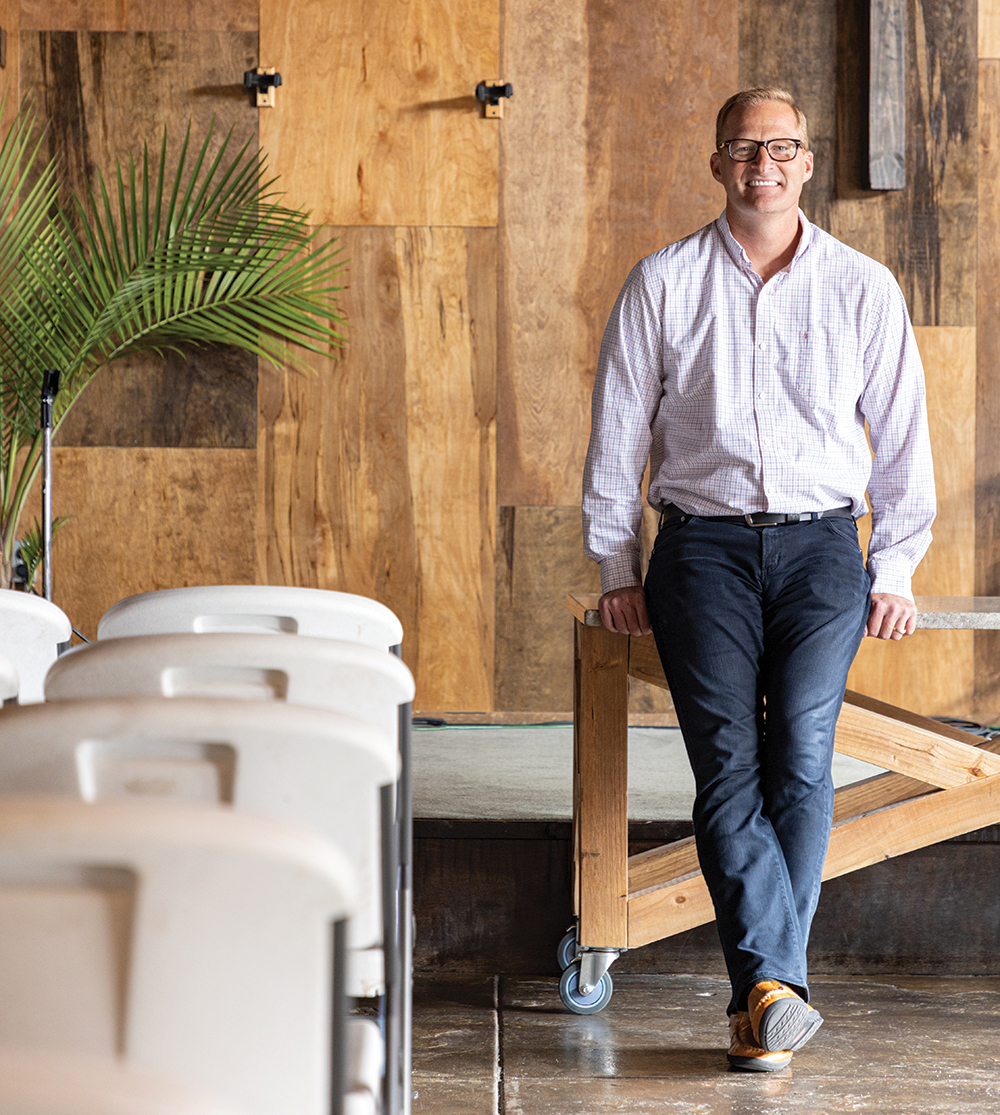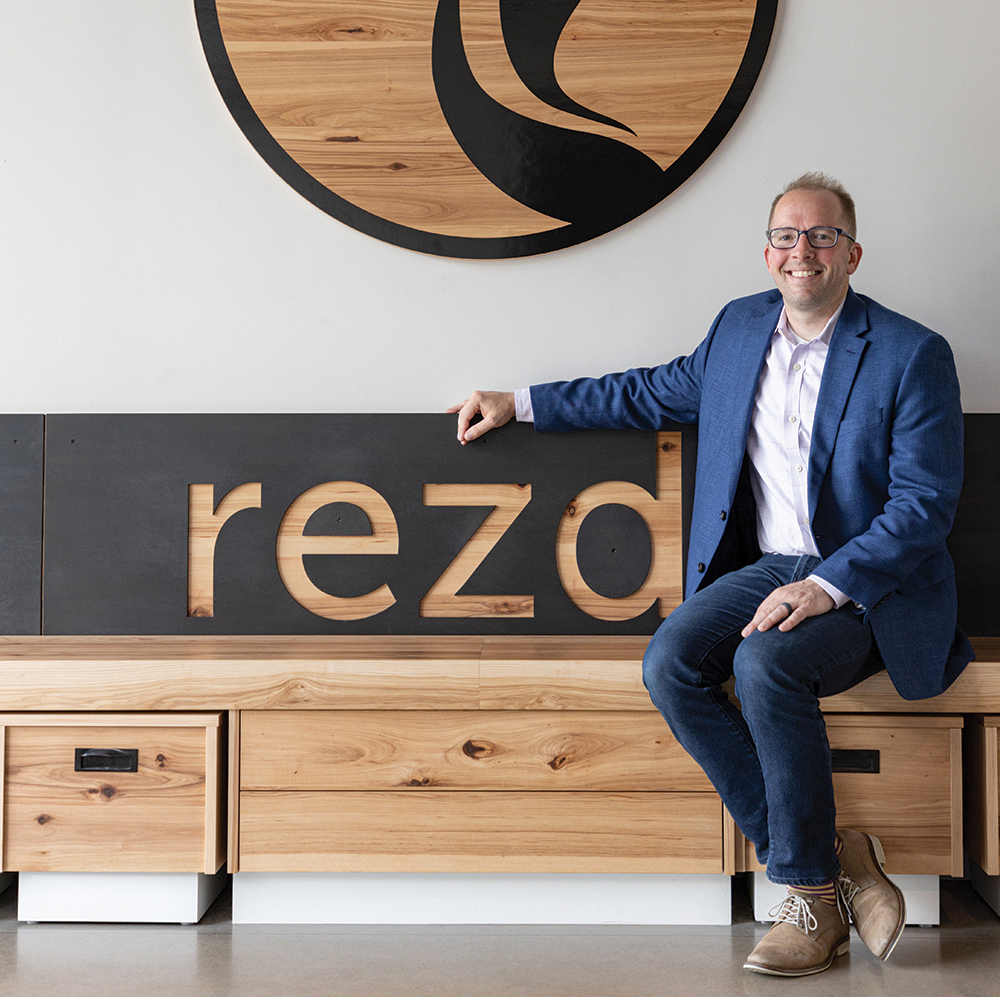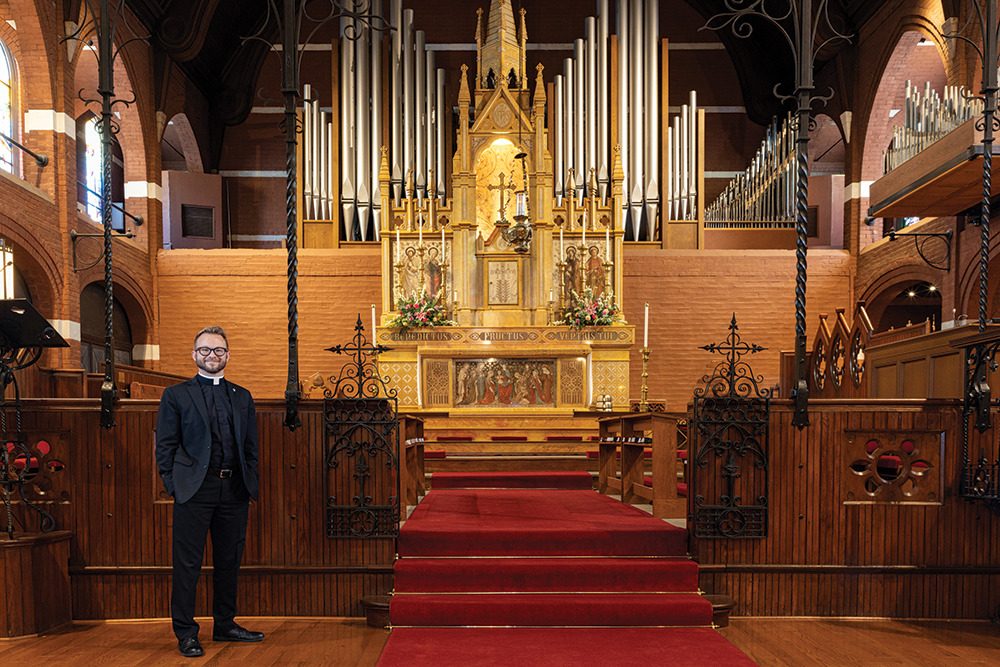
Troy Campbell took a minute to think about the last time he saw evidence of God in downtown Kansas City. After a good long silence, searching his memory and looking into the middle distance with his hand to his face, he says, “I would say Tuesday.”
A parishioner had been mugged and spent a night in the hospital. Later, he fell off the wagon, came into the NewLife City Church at 1717 McGee, and was discovered laying on a couch, passed out drunk. “It wasn’t pretty,” says Campbell, lead pastor at NewLife.
A few days later, the man’s roommate called Campbell to come check on him. “He was detoxing on his own and just shaking,” Campbell says. “We just had a moment. And we told him, ‘It’s ok. Everybody makes mistakes. You have hope.’ We ran out and got him some McDonald’s. He was eating and just shaking. It was so tough to see. In that moment, though, God was clearly in that room and giving him enough hope to see through the alcoholism.”
As Kansas City’s downtown population has grown, new places of worship have followed. NewLife has been downtown a little more than a decade. Two blocks to the north, Church of the Resurrection has built a new downtown campus after worshiping at the old Crosstown Station building for the last few years.
At the same time, there are some old standbys, such as St. Mary’s Episcopal Church, 1307 Holmes, which has been around for more than 100 years. In different ways, all are reaching out to a growing population seeking answers about faith.
Campbell, his wife, and friends planted NewLife downtown a little more than a decade ago, about the same time Church of the Resurrection was looking downtown. Before that, there hadn’t been a new church built in the area in decades. Campbell says NewLife came out of a desire to create a church accessible to all people. They wanted to minister to all generations, races, genders, and socio-economic statuses.
“Every Sunday you could be sitting next to someone who slept under a bridge or someone who slept in a penthouse,” Campbell says. “If you came and you smelled bad and you had alcohol on your breath, you would be treated the same as someone who stepped out of a BMW they parked across the street. And we are passionate about that. There is no difference. We are all broken.”
NewLife’s mission is to be a nondenominational place of worship, though Campbell is upfront about NewLife being theologically conservative. These days, though, that could mean anything from Mennonite pacifism to evangelical Trump voters.
Campbell says NewLife is something other. “I don’t talk politics,” he says. “Jesus really was not into politics. He said obey the laws and do the right things, but his kingdom was not of this world. I struggle with trying to attach to any sort of political party because I think it’s already faulty at that point. We would definitely have all parties represented here who love each other and get along and probably never talk about politics, and that’s great.”
It’s a perennial question for all churches: How do you bring in the next generation. NewLife’s approach: Give everyone—whether they’re millennials, Gen Xers, baby boomers, or the Greatest Generation—an opportunity to lead.
“Millennials are great leaders,” Campbell says. “We just sent youth on a mission to the Dominican Republic, and they were led by five millennials. I had parents ask if I was going or if someone older was going, and I was like, No. They’re under 30, and they’ve done way better than I could have. We give opportunity. We trust.”

Up the road at Rez Downtown, lead pastor Scott Chrostek is already looking toward serving the next generations. “We just had Vacation Bible Camp, and to think we had VBC in the middle of the city is just out of control,” Chrostek says. “We had 150 kids, and they don’t necessarily represent Gen Z, but whatever’s next. We’re focusing there, because we have a growing collection of kids in the center of the city.”
The resurgence of downtown is what brought the Church of the Resurrection first to a small space on Grand Boulevard then McGee. Now the church just recently opened its new facility on Grand. When Rez Downtown first opened, some questioned whether they were doing the right thing. They opened a church across the street from a strip club, just a few doors down from a tattoo parlor. And when the opportunity arose to move into Crosstown Station, they were moving a church into a former bar. Then they realized Temptations, the Mercy Seat, and Crosstown Station all had some biblical allusions.
Apparently it’s working. Chrostek says the church keeps growing. Two-thirds of the congregation comes within just a few miles of the church. Another demographic point: singles make up two-thirds of their congregation. This reported growth comes at an intriguing point in the larger church’s history. Church of the Resurrection is part of the United Methodist Church, which recently came down harshly on homosexuality when many leaders and members had hoped it would become more progressive with its doctrine.
Chrostek said a funny thing has happened since: While some Methodist churches have seen an exodus of members, Rez Downtown has seen an influx, partly because church leaders such as Adam Hamilton have spoken out about the need to be inclusive.
“We value people and don’t want anyone to be considered second class,” Chrostek says. “We want to welcome everybody and love everybody as God loves us. There’s been a lot of excitement and support downtown with a lot of people moving toward our church, largely because of our posture toward inclusivity. We haven’t seen any negative impacts.”

The Rev. Charles Everson said his church, St. Mary’s Episcopal at 1307 Holmes, sees a few United Methodists occasionally, some of whom expressed their pain over the decision. “Those folks that I can think of are disappointed in the Methodist Church’s recent decision,” Everson says. “We had a special prayer service after that decision came out.”
St. Mary’s walks the line between traditional and progressivism. Its services feature all of the rituals one might associate with pre-1960s Roman Catholicism, but with a progressive message of social justice. “We have female priests in the Episcopal church,” he says. “We have quite a few gay and lesbian members. I think we offer mystery, beauty, and art, but with a more progressive approach.”
Everson is happy with the steady growth they’ve seen at services in the past couple of years. “I can attribute that to millennials discovering our message,” he says.
He says his church’s mission is to preach the gospel to anyone who will listen. But they also are well-known for the music they produce internally and as a music venue for various groups throughout the city. They’ll again hold the Summerfest concerts in July, which usually pack the house, and they host several other one-off concerts. They also provide rehearsal space for a local children’s choir.
The third piece of St. Mary’s mission is to provide assistance to the poor. “It’s a very important part of who we are,” Everson says.
Currently, St. Mary’s is evaluating the best ways to serve the needs of the area. So many organizations provide hot meals these days, leaders are considering moving in a new direction. Teams are brainstorming ways to provide essentials such as toothpaste, deodorant, toilet paper, and other items not covered by public assistance. “St. Mary’s has always been a place with folks of very little means and folks with a lot,” Everson says.
Campbell with NewLife said the opportunities downtown to reach new worshipers are tremendous, because of the interesting mix of people. It’s more than likely worshipers will encounter someone different from them on the walk from their car to the church’s front door.
“There’s more diversity down here, there’s more need,” he says. “I think the human soul is needy wherever. In other locations people hide it better. I think the need is everywhere. Here it’s a little more raw.”
NewLife has its struggles, too. One obstacle is finding and developing leaders. There are times when they have invited people into leadership roles when they weren’t quite ready socially, emotionally, or spiritually. “That’s kind of on us,” Campbell says.
There also have been some struggles in understanding each other’s backgrounds. Campbell used himself as an example.
“I’ve been a pretty strait-laced guy my whole life,” he said. “A bad night for me is getting frustrated and yelling at my kids or yelling at my wife and saying something stupid. That’s a bad night for me.”
A bad night for someone who grew up in poverty, however, is a different story.
“Someone else might be getting angry, getting high, getting drunk, and having sex with multiple partners in one night,” he says. “Because that’s what they came out of, it’s easy to fall back into that. So how do we help provide opportunities for people coming out of serious unhealthy stuff that’s their default? That’s a little bit of a struggle.”
Campbell says his role is to give people hope, which many downtown desperately need. “Just because my past is not a difficult past doesn’t mean you can’t be given hope and your life changed,” he says. “I think the bible gave us plenty of examples of people who had pretty difficult pasts who became great leaders.”
Chrostek agrees, though he put it another way. When people looked crossways at them for putting a church downtown, he and other church leaders had a feeling it was exactly where they needed to be, even if it didn’t make sense at the time. “I think God specializes in the nonsensical,” he says. “So maybe it was weird and it didn’t make any sense, except it felt like this was where we were meant to be.”


